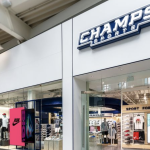Collective Brands Inc. reported a loss of $114.3 million, or $1.91 a share, in the third quarter after charges totaling $151.4 million for lease termination costs and tax valuation reappraisals tied to its Payless division. Adjusted net earnings were $37.1 million, or 61 cents per share, down 22.1 percent from adjusted earnings of $47.6 million, or 75 cents a share, in the year-ago quarter.
Revenues inched ahead 1.4 percent to $894.4 million due to strong growth in PLG Wholesale segment and new store growth in the Payless International segment. Comps declined 3.7 percent, primarily impacted by the Payless Domestic business.
Payless Domestic net sales declined 5.1 percent to $520.9 million and same-store sales decreased 4.5 percent. The decline was driven principally by a high-single-digit percentage comp decline in August after a lackluster BOGO event. Aggressive pricing actions in response helped drive month-to-month improvements in traffic and same-store sales in September and October. Reduced year-over-year customer traffic, lower athletic sales, and lower sandals sales led to a decline in footwear units sold. Strong performance was achieved in boots and accessories. The Payless Domestic segment recorded an operating loss of $8.9 million after charges of $4.9 in the period against income of $35.3 million a year ago.
“We are strategically incurring short-term margin loss, secure market share and unit scale to deliver long-term profitability and return on invested capital,” said Michael Massey, Collective's interim CEO, SVP, general counsel and secretary, on a conference call with analysts. “While operating profit was clearly disappointing, Payless North America results included learnings and early signs that we are headed in the right direction and making progress in our turnaround.”
LuAnn Via, president and CEO for Payless ShoeSource, said results at Payless Domestic improved sequentially within the quarter across a variety of measures, including comps moving from a negative high-single-digit percentage to nearly flat, customer traffic improving from down high-singles to down mid-singles, and conversion rates shifted to positive. Reduced ticket prices helped re-engage the budget-conscious consumer to the chain while strong on-trend merchandise led to positive sales in platform pumps and boots, as well as growth in the key categories of running and slip-resistant footwear. Other key categories including fitness, basketball and sandals underperformed. Overall, Payless Domestic reduced the rate of its traffic decline by about 100 basis points from Q2 to Q3.
Besides markdowns in the near-term to reconnect with budget-conscious consumers, Payless is introducing more tiered pricing at more moderate levels, expanding its Incredible Value Every Day (IVED) program, and continuing its Hot Deals Of The Week program.
“Even though we are in times of continued cost pressures, we believe we can improve our price value quality proposition by maintaining and selectively enhancing where perceived value is high,” said Via. “These adjustments will come deliberately style by style.”
Other efforts including expanding localized assortments, enhancing its loyalty program, improving direct marketing to new customers, and through store remodels. All the chain's stores in the Houston market were renovated earlier this month with “very positive” initial results.
Payless International segment sales increased 1.2 percent to $119.9 million in Q3, as seven net new stores more than offset the impact of a 1.4 percent comp decrease.
Segment same-store sales increased in Latin America and decreased in Puerto Rico and Canada. Payless International's operating earnings dropped 55.0 percent to $8.2 million due to pricing actions and higher product costs. Said Via, “Many of the domestic initiatives will also benefit Payless international as they, too, are impacted by unfavorable global economic condition.”
Overall PLG (Performance + Lifestyle Group) revenues grew 18 percent while operating profits gained 12 percent. .
PLG Wholesale sales increased 27.3 percent to $180.3 million, led by Sperry Top-Sider growth across virtually all product categories, distribution channels, and customer segments. Saucony, Stride Rite, and Keds also delivered higher sales. Operating profits climbed 30.1 percent to $9.5 million as operating margins improved after two declining quarters.
The PLG Wholesale group leveraged fixed expenses and passed along selective price increases, which mitigated higher product costs that continued to grow double-digit percentages.
PLG President and CEO Gregg Ribatt said Sperry Top-Sider saw significant growth across men's and women's with women's now expanding to more than half of sales. Strong growth was seen its core boat shoes as well as non-boat shoes, including strong growth in casual and rain boot collections. Sperry also continues to successfully attract a younger demographic than it has traditionally. Sperry's 15 retail locations are also exceeding sales and profit plans with four more stores planned this year.
Saucony's growth was driven by minimalist and lightweight models and strong growth in international markets. Ribatt said Saucony reached the number one position in minimalist and cross-country shoes within the run specialty channel, and also won a series of awards from consumer magazines for its Cortana, Ride 4, and Kinvara 2 models. A new line of Vizi Pink night running apparel was also launched. Keds' gains were driven by strength in premium channels of distribution, as well as international markets, partially offset by lower sales in the family and moderate channels. Stride Rite wholesale sales also increased in the quarter. In children's, Sperry Top-Sider and Jessica Simpson showed increases.
PLG Retail revenues increased 0.7 percent to $73.3 million due to higher sales at new and existing Sperry retail stores. Positive comps were also generated for Stride Rite outlet and leased department stores as well as e-commerce. The overall 1.1 percent same-store sales decrease was due to a decline at Stride Rite stores. Segment operating profits dipped 7.0 percent to $6.6 million.
PLG's international sales were strong in the quarter, driven by higher sales in Europe and Canada. In addition to traditional wholesale sales, PLG also built its distribution and licensing business with three new agreements during the third quarter — ABC-Mart in Japan for Sperry and Saucony, RSH Ltd. in Singapore and Malaysia for Sperry, Saucony and Keds, and Sefonia Yourself in Spain for Keds.
On an adjusted basis, the gross margin rate declined 520 basis points to 32.1 percent of sales as a result of higher product costs and the pricing actions taken at Payless during the quarter. SG&A expenses as a percent of sales increased 30 basis points on an adjusted basis. Adjusted EBITDA was $52.5 million in Q3 compared to $102.8 million last year.
Collective Brands management reiterated that PSS intends to close approximately 350 stores this year as part of a broader plan to close 475 by the end of 2013. Approximately 300 of the stores slated to close this year are Payless and about 50 are Stride Rite locations. An additional 35 stores being closed this year than stated previously. PSS anticipates the three-year exit costs will be about $25 million to $30 million, $5 million lower than the high end of its previous estimate, and expects $18 million to $22 million in ongoing improvement in operating profit when all 475 stores close by the end of 2013.
Looking ahead, Q4 gross margin will continue to be pressured, although not to the same extent as in the third quarter. Margin pressures in particular will not lighten up for Payless as orders for current inventory were significantly committed to prior to the change in the Payless strategy. Product costs in the fourth and first quarters are expected to increase approximately 10 percent. PLG Wholesale sales are expected to grow more than 20 percent in Q4. Fourth quarter backlog was up 17 percent compared to last year.













